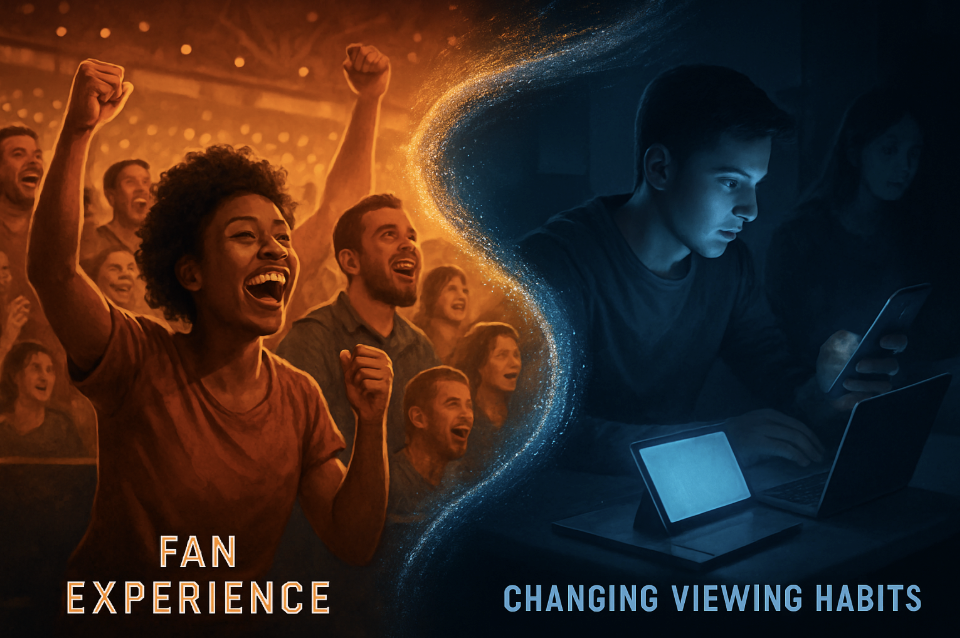The Evolution of Gambling Sponsorship in Modern Football
We find ourselves witnessing an unprecedented transformation in professional football, where gambling companies have become omnipresent across every touchpoint of the sport. From jersey sponsorships to stadium naming rights, betting brands and even themed entertainment like the Avia Masters casino have woven themselves into the fabric of the beautiful game in ways that were unimaginable just two decades ago. This relationship has evolved from occasional pitch-side advertisements to comprehensive partnerships that dominate the visual landscape of football at every level.
The financial muscle of gambling operators has reshaped football’s commercial ecosystem entirely. We observe betting companies outbidding traditional sponsors across multiple leagues, securing prime advertising positions that guarantee maximum exposure during live broadcasts watched by millions globally. This symbiotic relationship has created a marketing phenomenon where football provides gambling companies with legitimacy and reach, while gambling revenues provide football clubs with essential financial stability in an increasingly competitive marketplace.
The Financial Magnitude of Betting Partnerships in Football
We must examine the staggering financial commitments that underpin these partnerships. Premier League clubs alone have secured hundreds of millions in gambling sponsorships, with individual shirt deals reaching eight-figure sums annually. Championship clubs, operating with tighter budgets, have become particularly dependent on betting revenue, with the majority of teams in England’s second tier displaying gambling brands prominently on their kits.
The economics are compelling from both perspectives. Gambling operators gain access to passionate, engaged audiences during peak viewing times, while clubs receive predictable revenue streams that support player acquisitions, infrastructure development, and operational costs. We see this financial interdependence creating a commercial ecosystem where betting brands have become indispensable to the economic viability of numerous professional clubs.
Beyond shirt sponsorships, we observe gambling companies investing in perimeter advertising, digital assets, match-day experiences, and exclusive content partnerships. These multi-layered agreements ensure comprehensive brand visibility that extends far beyond the ninety minutes of play, creating touchpoints throughout the entire fan journey from pre-match analysis to post-game highlights.
The Global Expansion of Football Betting Advertising

We witness this phenomenon extending well beyond English football. Spanish La Liga, Italian Serie A, and leagues across Europe, Asia, and Latin America have embraced gambling partnerships with varying degrees of regulatory oversight. The globalization of football broadcasting has amplified the reach of these sponsorships exponentially, creating international exposure that justifies premium sponsorship valuations.
Asian markets have proven particularly lucrative for this partnership model, with betting operators targeting football-obsessed populations across the continent. We see clubs conducting pre-season tours in regions where gambling sponsorships face fewer restrictions, maximizing exposure in markets with enormous growth potential. The commercial strategy has become sophisticated, with data analytics driving targeted campaigns that segment audiences and deliver personalized betting promotions aligned with match schedules.
European competitions provide additional premium inventory for gambling advertising. Champions League and Europa League broadcasts reach global audiences measured in hundreds of millions, making these platforms extraordinarily valuable for betting brands seeking international recognition. We observe sponsorship activations becoming increasingly creative, integrating augmented reality elements, social media campaigns, and influencer partnerships that extend brand reach beyond traditional broadcast channels.
Regulatory Frameworks and Restrictions Across Jurisdictions
We must acknowledge the complex regulatory landscape governing gambling advertising in football. Different jurisdictions have implemented vastly different approaches, creating a patchwork of rules that clubs and sponsors—from large betting corporations to niche platforms like Pirots 4 navigate with varying success. Italy has banned gambling advertising entirely from football, while Spain has imposed watershed restrictions limiting promotional visibility during certain hours. The United Kingdom has introduced voluntary measures through which clubs commit to removing betting brands from children’s replica shirts.
These regulatory interventions reflect growing societal concerns about gambling proliferation and its potential harms. We see public health advocates, addiction specialists, and community organizations increasingly vocal about the normalization of betting through football sponsorships. Research highlighting correlations between advertising exposure and problem gambling behaviors has intensified political pressure for stricter controls.
Regulators face difficult balancing acts between protecting vulnerable populations and preserving commercial freedoms that sustain professional sports economics. We observe ongoing policy debates in parliaments across Europe, with gambling reform appearing prominently on legislative agendas. The trajectory suggests increasing restrictions are inevitable, forcing both football and gambling industries to prepare for a fundamentally altered commercial landscape.
The Psychological Impact and Normalization of Gambling
We cannot overlook the psychological dimensions of saturating football with gambling imagery. Young supporters absorbing constant betting messages during formative years may develop distorted perceptions about gambling’s place in sport and society. Research indicates that repeated exposure to gambling advertising creates familiarity and perceived normality, potentially lowering psychological barriers to participation.
The integration has become so complete that betting odds now feature prominently in match previews, analysis segments, and even commentary. We observe broadcasters incorporating betting-related statistics and metrics that blur the lines between sports journalism and gambling promotion. This editorial integration represents a qualitative shift beyond traditional advertising, embedding wagering language into the fundamental discourse surrounding football.
Particularly concerning are marketing tactics specifically designed to appeal to younger demographics. We see betting apps gamified with features resembling video games, social media campaigns utilizing memes and viral content, and influencer partnerships that target followers skewing younger than legal gambling age. The sophisticated deployment of behavioral psychology and digital marketing techniques raises serious ethical questions about responsibility and harm prevention.
The Fan Experience and Changing Viewing Habits

We recognize that gambling integration has fundamentally altered how many fans experience football. In-play betting markets have transformed passive viewing into active participation, with fans placing multiple wagers throughout matches based on evolving game situations. This engagement model has created new revenue streams for operators while potentially enhancing entertainment value for participants who enjoy the added dimension of financial stakes.
However, we must also consider fans experiencing gambling fatigue from relentless promotional messaging. Supporter groups across multiple countries have voiced opposition to betting sponsorships, citing conflicts with community values and concerns about vulnerable supporters. Some fan organizations have launched campaigns advocating for alternative sponsorship models that prioritize local businesses or charitable causes over gambling operators.
The democratization of betting through mobile technology has accelerated participation rates dramatically. We observe seamless integration between watching matches and placing bets through apps specifically designed for minimal friction and maximum conversion. Features like cash-out options, partial settlements, and live streaming within betting platforms have created self-contained ecosystems that keep users engaged throughout extended sessions.
Alternative Revenue Models and Future Scenarios
We should examine potential alternative sponsorship models that could reduce football’s dependence on gambling revenue. Cryptocurrency exchanges, online gaming platforms, and technology companies have emerged as viable alternatives in some markets, demonstrating that premium sponsorship valuations exist beyond betting operators. Some clubs have pioneered fan-owned sponsorship models or ethical investment partnerships that prioritize social responsibility over maximum financial return.
The sustainability of current gambling sponsorship levels faces significant uncertainty. We anticipate regulatory changes will force adaptation, potentially creating opportunities for diversified revenue strategies less dependent on single industry sectors. Clubs demonstrating foresight in developing alternative commercial partnerships may find themselves better positioned for long-term stability as regulatory environments evolve.
We envision scenarios where technology enables personalized advertising delivery, allowing broadcasters to show different sponsors to different viewer segments based on jurisdiction and preference. This technological solution could satisfy regulatory requirements while preserving commercial value, though implementation challenges remain considerable. Blockchain-based verification systems and artificial intelligence-driven content moderation may play roles in future regulatory compliance frameworks.
The Ethical Considerations and Social Responsibility
We must confront the ethical dimensions of this commercial relationship directly. Football occupies a unique cultural position with profound influence over communities, particularly young people for whom players serve as role models and clubs represent sources of identity. This influence carries corresponding responsibilities that extend beyond purely commercial considerations.
The gambling industry’s social license to operate through football sponsorships depends substantially on demonstrated commitment to harm minimization and problem gambling prevention. We observe some operators investing in responsible gambling initiatives, treatment programs, and research funding, though critics argue these efforts remain inadequate relative to marketing expenditures. The fundamental tension between promoting gambling and preventing its harms creates inherent contradictions difficult to resolve satisfactorily.
We recognize that vulnerable populations disproportionately experience gambling-related harms, raising justice concerns about aggressive marketing through culturally significant institutions like football clubs. Communities already facing socioeconomic challenges may be particularly susceptible to gambling’s appeal and its potential negative consequences. This distributional dimension adds moral complexity to debates framed purely around individual choice and commercial freedom.
Conclusion: Navigating the Complex Intersection
We stand at a critical juncture in the relationship between football and gambling. The commercial partnership has delivered significant financial benefits to clubs while raising substantial concerns about public health, youth exposure, and the normalization of wagering. As regulatory frameworks tighten and societal attitudes evolve, both industries must navigate increasingly complex terrain balancing commercial interests with social responsibilities.
The perfect partnership label requires scrutiny given the mounting evidence of gambling-related harms and the particular vulnerabilities of football’s diverse supporter base. We advocate for thoughtful policy approaches that protect vulnerable populations while acknowledging the economic realities facing professional football. Sustainable solutions will require collaboration among regulators, clubs, gambling operators, public health experts, and supporter communities to develop frameworks prioritizing wellbeing alongside commercial sustainability.













You must be logged in to post a comment Login